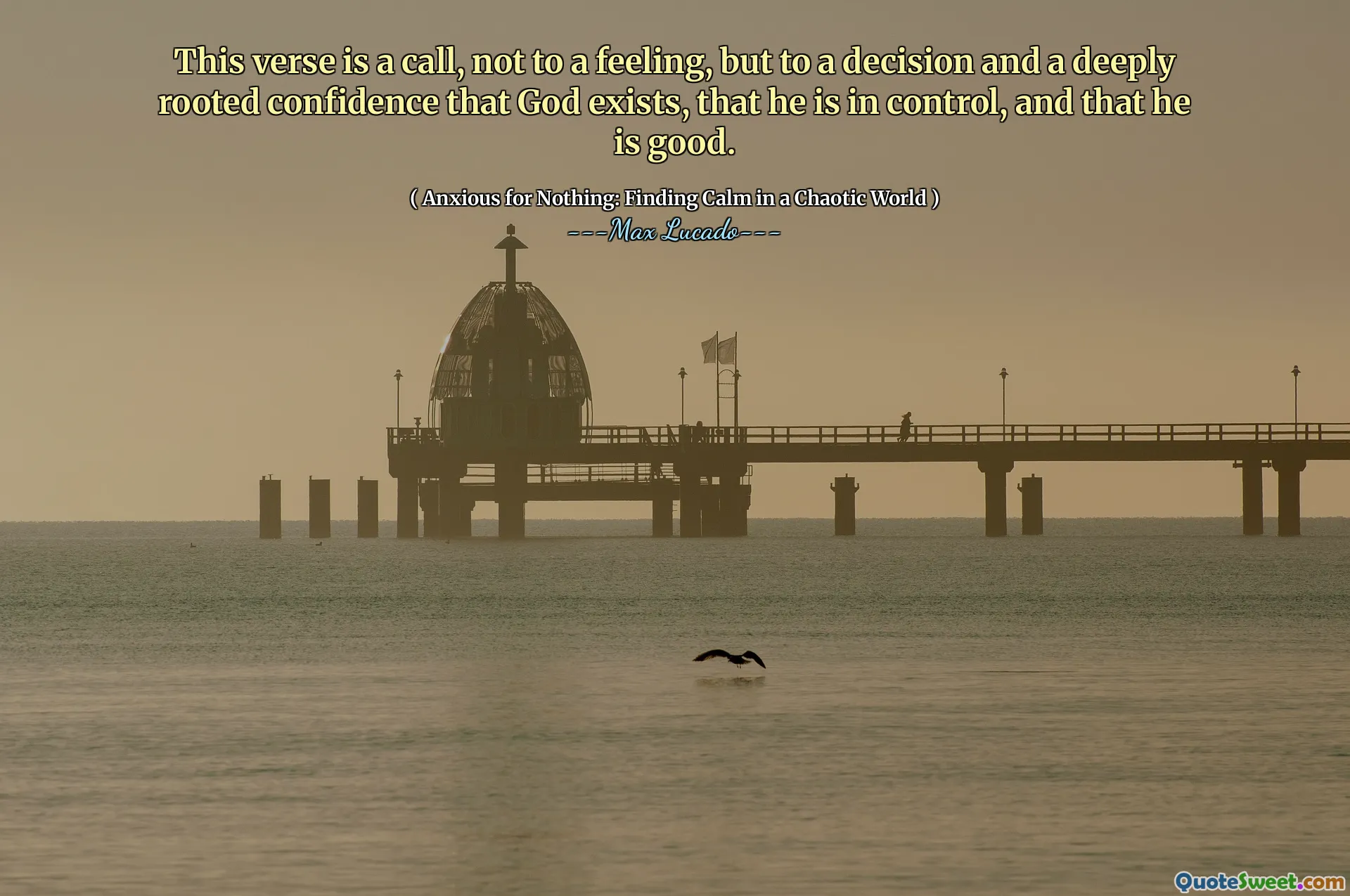
This verse is a call, not to a feeling, but to a decision and a deeply rooted confidence that God exists, that he is in control, and that he is good.
This quote emphasizes the importance of active faith and deliberate trust in God's character rather than relying solely on emotional experiences. Often, individuals seek quick moments of comfort or feelings of God's presence, which can lead to fluctuating faith based on circumstances. However, the core message here encourages making a conscious decision to trust God's existence, sovereignty, and goodness regardless of how one feels at any given moment. Such an approach fosters stability and deeper spiritual maturity, knowing that faith isn't merely about fleeting emotions but about a steadfast agreement with God's nature. In a world filled with chaos, uncertainty, and distraction, anchoring oneself in a confident belief in God's control becomes a vital act of courage and perseverance. It invites believers to re-center their trust on what is true, even when feelings may waver. This perspective aligns with biblical teachings that emphasize faith as a choice—trusting in truths that transcend superficial feelings. By choosing to believe in God's goodness and sovereignty, believers can navigate life's challenges with a sense of peace and resilience. This decision-based faith serves as a foundation for enduring spiritual growth, fostering hope, and empowering individuals to face their fears with confidence. Essentially, it's a reminder that faith is active and intentional—more about trusting God's character than waiting for feelings to affirm that trust. Such a mindset can transform how one experiences faith, making it more consistent and grounded in reality rather than transient emotion.







